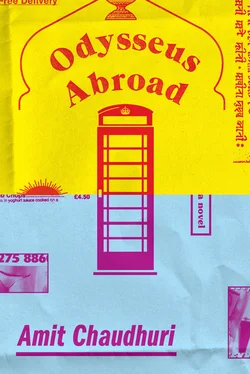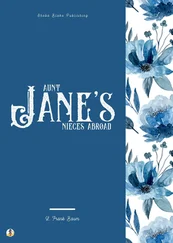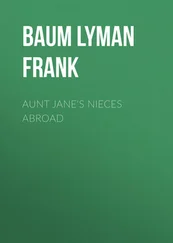—
Khuku and her husband had lived as a couple in Belsize Park for two years; now, there was a third. Radhesh didn’t live or sleep in their pockets; but almost. They’d arranged for him to live in the bedsit opposite. (After Ananda’s parents’ departure, Radhesh moved to their bedsit, and, in a few years, Shah rented his .) Ananda’s mother ensured the friends focussed on exams while she handled the universe. Back from work at the naval department, she sometimes made bhaja mooger daal, roasting the pulses, lastly pouring in the oil, which had just popped with cardamom and cinnamon bark. The aroma was an announcement that Radhesh must cross the hallway and join them for dinner. She and her husband introduced Radhesh to herring, which she cooked in a gravy of mashed green chillies as a substitute for ilish . It was no ilish; it had hooped bones and none of the quills embedded in the Bengali fish. Its taste was less dark. Yet eating herring was a minor celebration, a return to the habits of home, and they made smacking noises as they sorted the bones with their fingers.
—
In both Belsize Park and Belsize Village there was a contingent of Bengali men and women. They’d come for medicine, accountancy, surgery, librarianship, and law. The scents Khuku released into the building often transfixed them. They were also intrigued by the regime and discipline she’d imposed on her husband and brother. For these people, Belsize Village and Park were at once a crowded bhadralok village and an island: from which return was desirable but not imminent. It was as if nothing mattered — not even exams — before the urgency of gossip, food, and each other’s aspirations. They were audible to one another on Belsize Avenue through half-open windows. Khuku had heard of them when she was in Shillong; a childhood friend of hers had grandly shared a letter written by her husband, already entrenched in Belsize Park and appearing for certified accountancy exams: “I am eagerly awaiting your arrival. There are a few things you need to know about this country. You will not find it necessary to say ‘Thank you’ here. ‘Q’ is sufficient.” Neither Khuku nor her husband nor Radhesh wanted to associate closely with this assortment of types — to be stuck on an island punctuated by convulsions of rote-learning and dominated, between 1955 and 1961, by a mixture of restiveness and forgetfulness. By the time Ananda visited the area in 1973, the island had largely vanished. Belsize Village remained — and his uncle.
—
They were three. But who was the third? Was Radhesh Ananda’s father’s best friend, or had that role been appropriated by Ananda’s mother? Khuku and Radhesh themselves had been exceptionally close in Shillong — in those two years after Partition, when the family had been transplanted to that hill station (its weather a preparation for, and a lesson in, English weather), they were inseparable and went for long walks up and down the hills around the lake — mistaken by some, to Khuku’s amusement, for “girlfriend” and “boyfriend.” Oh, this hopeless older brother, incapable of finding a partner or getting married, hanging out with his sister, making her , implausibly, his Penelope! Then (in his own narrative and account) hinting to his best friend that he marry her. The question re-presented itself in Belsize Park: was she his, or his ? Ananda’s father was nonchalant, tolerant; but his uncle demanded absolute fealty. The answer was unarguable, and only an idiot like him would take so long to figure it out: he, Radhesh, was the third — both to his friend and to his sister. He was alone, despite the illusion of togetherness. He never really forgave her her desertion. Even now, when she reappeared in London on her custodial forays into Ananda’s life, his uncle could be incredibly rude — hurtful — towards her. She was his — but her fidelities were variously dispersed, towards her husband, other members of the family, and towards Ananda of course. In that regard and in others, Ananda and his uncle must be rivals.
The first of the Chartered Shipbrokers exams came and went. Radhesh didn’t take them. He hadn’t studied enough. He was fundamentally superstitious; not only in ordinary ways, but in believing that certain procedures needed to be followed to the letter before success could be ensured. In his case, the ritual was absolute immersion in preparations. He’d once passed through a utopian phase in school, when he decided that anything less than perfect preparedness was useless. This was a consequence of running into his science teacher on the street prior to his Chemistry exam, when he’d enquired politely: “Sir, how do I ensure that I’ll do well?” The teacher said, “You should know every word in your Chemistry textbook” and went on his way. So Radhesh set about familiarising himself with each word. He never appeared for the Chemistry exam.
Ananda’s father speculated about whether he’d repeat those tactics in London. But he did write his Part One the next time he had an opportunity; he passed, without distinguishing himself. He was troubled; his ambitions were aimed much higher. He’d crammed shipping law like a fanatic for six months.
Radhesh thought it over and changed strategy. Clearly, identity was key. Chartered Shipbroking was well known for being a white man’s domain. They wouldn’t let just anyone in, especially to the pucca upper strata. The Fellowship was fiercely competed over by men from Harrow and Rugby. Radhesh considered his surname — Nandy Majumdar. A double-barrelled kayastha title of (he liked to boast to Ananda) kulin ancestry. Majumdar. The examiners doubtless thought he was African. Majumdar, Majoomba — it was the same to them. They couldn’t let an African in: as simple as that. He re-enrolled, lopping off Majumdar. (“From ‘mauja daar,’ ” another wastrel relative had bragged to Ananda, “ ‘owner of several villages.’ ”) He became the universal, non-committal “Nandy.”
He stood First in Part Two—“in the world,” Ananda was often reminded, as examinees were scattered globally and throughout the Commonwealth. In Belsize Park and Belsize Village, his uncle was celebrated for his metamorphosis to world-conqueror.
—
And what happened then? What changed from when Ananda’s parents left him in his triumph?
Ananda remembered his first expedition to Belsize Park from the bed and breakfast on Haverstock Hill in 1973. They’d arrived the previous night; they were woken up by a buzzer summoning them to breakfast. They sat at a large table with a man in thick glasses and a black suit who buttered, back and forth, four slices of toast, breathing hard. His mother’s sari shone like an exotic plumage. Then — once the disciplinarian silence of breakfast was lifted — they were liberated, and were out on Haverstock Hill, crossing the road and marching down Belsize Avenue. When they reached the house his parents had left twelve years before, his father, instead of going up the steps to press the buzzer, cried in the sunlit space to the first-floor window: “Radhesh?” The heavy window creaked onerously as it was lifted; his uncle peered out. “Open the door!” The three went up the steps and united on the porch, as if posing for a family photograph. Radhesh, lurking inside in his dressing gown, opened the door a few seconds later. Through it they passed into the dark stairwell, and up the wide stairs on which the electric light shone a minute at a time. The house closed upon Ananda in a years-old smell of dust and curry. In Rangamama’s bedsit, nothing had been polished or dusted for a few years at least. Things had multiplied: pots, cups, pans; greeting cards. Telephone numbers, including country codes (Ananda’s father’s among them), were inscribed in a large clear hand above the mantelpiece. (That bedsit had pink wallpaper.) A pile of the Pan Book of Horror Stories occupied the rug near the bed. Dust had settled in an ashen nuclear winter on the table and chairs, and formed serpentine moustaches on the sides of walls. Ananda’s uncle held forth, the perfect host. The bed was unmade; he hadn’t smoothed the sheet or pulled up the blanket. Ananda’s father instructed his wife and Ananda to step through the windowsill on to the half-octagon of the parapet. With barely room to sit, they looked out at the breadth of Belsize Avenue, talking, Ananda glancing now and then over his shoulder. His uncle, standing in his maroon dressing gown, was declaiming, releasing statements pent up for years. His father, dressed in a suit as if for a business appointment, had covered his mouth and nose with a handkerchief. He was beating surfaces with a duster, leading to black storms within. When the storms subsided, the two returned from the sunshine into the room.
Читать дальше











